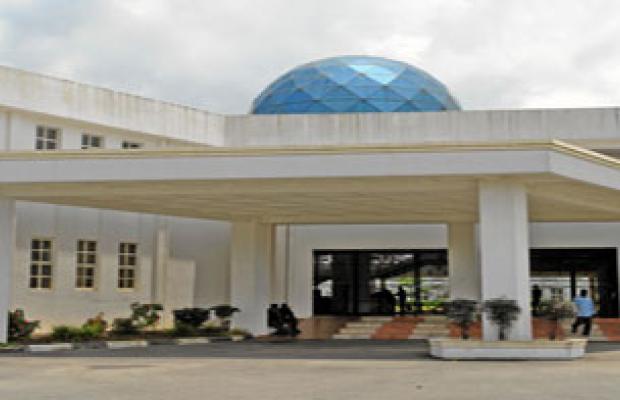
Despite warnings by security agents against the planned movement, Nigerians especially youths in their numbers, defied all odds to make it possible. An indication that the electorate is tired of those running the affairs of the country, who they feel have failed to carefully protect them.
Indeed, the neglect of the masses by the elite is finally leading to the rising spate of insecurity across the country.
Unemployment and youth dependency is rising; even those in employment are not having it rosy as the new minimum wage implementation has become a mission impossible: hunger and poverty are stalking the land; education, healthcare, and other social amenity are not working; government’s policies are frustrating small businesses. On the other hand, corruption, nepotism, ethnicity, and injustice have become the way to go in the country.
As Senator Chukwuka Utazi of the Peoples Democratic Party (PDP – Enugu North), rightly posited during their sessions in May, “Today, the chicken has returned home to roost: the downtrodden are revolting. Hitherto docile beggars have risen in arms, forcing those with powers of patronage to beg for safety. The elite are being attacked. We have in our hands a dictatorship of the beggars, fuelled by drugs and poverty.
“While the whole country is being dangerously menaced from every angle, the northern part of the country has come under mass revolt by the poor (as) expressed in the rampant criminality of the neglected. The poverty and unemployment rates in the country are haunting. An idle mind, they say, tempts the devil. It is sesame for anarchy”.
Some 10 years ago, the country witnessed the growth of violence in the Northeast. A few years after, the Middle Belt began to witness her own dose of fire and brimstone. As efforts were being made to quench the fire, banditry and violence crept into the Northwest states of Sokoto, Zamfara, Kebbi, and other neighbouring communities. Gradually, the Southwest and Southeast are witnessing their own dose of violent killings, kidnappings and an atmosphere of fear and uncertainties.
According to Journalist for Democratic Rights (JODER), in Katsina, the home of President Muhammadu Buhari, a total of 27 residents were killed in just one day in July. Also in Zamfara, about 30 people were killed in three days.
A few days after a Catholic priest, Rev. Fr. Paul Offu, was murdered by unknown gunmen in Enugu, the traditional ruler of Obom Agbogugu in Awgu Local Government Area of Enugu State, Igwe Sunday Orji, and his wife were abducted by unknown gunmen along the Enugu-Port Harcourt Expressway.
Another five persons, including a pastor of the Redeemed Christian Church of God (RCCG), were kidnapped along the Lagos-Ibadan Expressway. In just one week in May 2019, about 27 persons were kidnapped by gunmen, including a relative of President Muhammadu Buhari. A recent report by an online news platform, Avalon Daily, revealed that about 834 Nigerians lost their lives to criminality and banditry in just six months, from January to May.
According to the report, while 87 were killed in January, February, March, April, May claimed 178, 185, 132 and 252 lives respectively. The report, however, identified that the incidence of insecurity is not helped by a large dose of distrust for the country’s security architecture.
The study, termed “the perception of security across the country’, was conducted amongst 1,600 respondents across the 36 states. It revealed that 98 per cent of Nigerians feel that the police are not living up to their responsibilities, while 71 per cent does not feel safe in the country today and express more confidence in vigilante groups than the police. Meanwhile, 85 per cent feet that security threats were increasing across the country while 96 per cent believe the security situation under president Buhari is unfavourable.
To this end, a professor of criminology from the University of Alberta Canada, Prof. Temitope Oriola, warned that it is time for the country’s elite to be aware that their survival is hinged on their ability and capacity to make the ordinary man comfortable.
While speaking recently at Avalon Daily’s quarterly roundtable discussion, he said the rising cases of restiveness and crimes are exasperation of the people over the basic lack of capacity of the state to administer anything from electricity, roads to the management of Internally Displaced Persons (IDPs), among others with no will to act.
He said people easily express their frustration in a violent manner to their immediate surroundings, when they cannot take it any longer, adding that the crisis to some people is a basic mechanism of accessing the basic ladders of livelihood. In his view, Managing Editor of the Avalon Daily, Mr. Ayodele Adio, said the high level of poverty and unemployment has forced several non-state actors on the national scene, who are surviving by fuelling violence.
He noted, “In the last three decades, various Nigerian governments have consistently widened the inequality gap while increasing poverty, so much so that we are left with 90 million extremely poor people. So whether it is Banditry, kidnapping or cattle rustling, these are activities carried out mostly by young Nigerians who have been excluded by the government. Unfortunately, the seeming inability of the government to create meaningful employment opportunities is making many more Nigerians lose faith in the state.
“If the government has failed in its cardinal responsibility of welfare and security, the unintended consequence is the surge in criminal activities across the country. And as the saying goes, if gold rusts, what can iron do?”
However, a former Nigerian military intelligence officer, Captain Umar Aliyu, said the crisis has continued unabated because apart from the distrust on the security network, the police and army are not able to combine to combat insecurity because there is antagonism between these two forces.
The security expert added, “When the military took over power, they treated the police like a redheaded stepchild, underfunded them, encroached on their power, and that was the beginning of the decline of the police and militarisation of our crime-fighting. The police force was sidelined; they went to fallow, and because humans don’t exist in a vacuum, they just rotted away and found other things to do for themselves.
“For impact in terms of security, the Nigeria Police Force needs to be rejigged. The one we have today you cannot teach anything new, because you don’t teach old dogs new tricks. We need to disband this police and start afresh.
“Let me tell you the truth, what we need is not a police or army to tackle crime at this stage of 2019 Nigeria. What the country needs but has not is a National Guard. The police and army can’t combine to fight insecurity because there is antagonism; it is so intense that it sparks fire; so, what we need is a hybrid, a National Guard.”
On his reason for Nigerians distrusting the police and the nation’s inability to holistically win the war against insecurity, Aliyu said, “Policing is personal. Everyone would want his own security; so, they would rather trust a vigilante who knows everything about you. They enter the space of providing security for you, not just officially but personally. If it affects you, it also affects them, hence the trend that people will rather sleep with a vigilante in their front gate than a policeman.
“Also, our system doesn’t help issues, because the system itself is outmodeled; it’s like a system built-in 1960, and due for a renovation. So, you have someone who trained in Police College and then you take him to Bariga, and he is feeling like a Youth Corps member from Eket who came to Kaduna State. He is a stranger; so, protecting you is not personal.
“See, at 42 million people in 1960 we had one army; now with about 200 million people in 2019, we should have six grades of an army, including desert, jungle, riverine and mountain armies. We have never done desert warfare before; we should be able to fight in a desert. From a national security perspective, we are looking at a nation that has outgrown its institutions.”
[ad unit=2]






